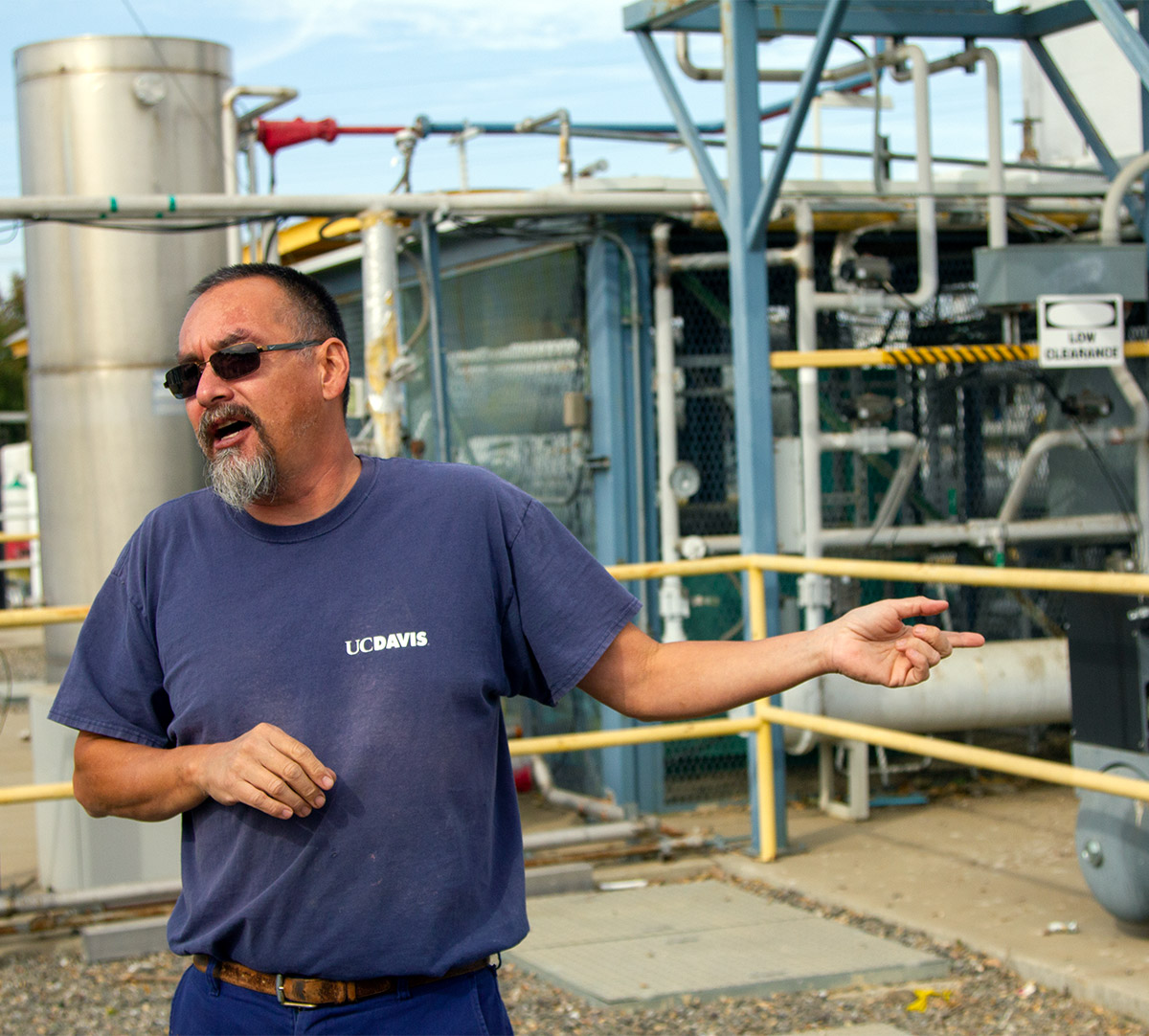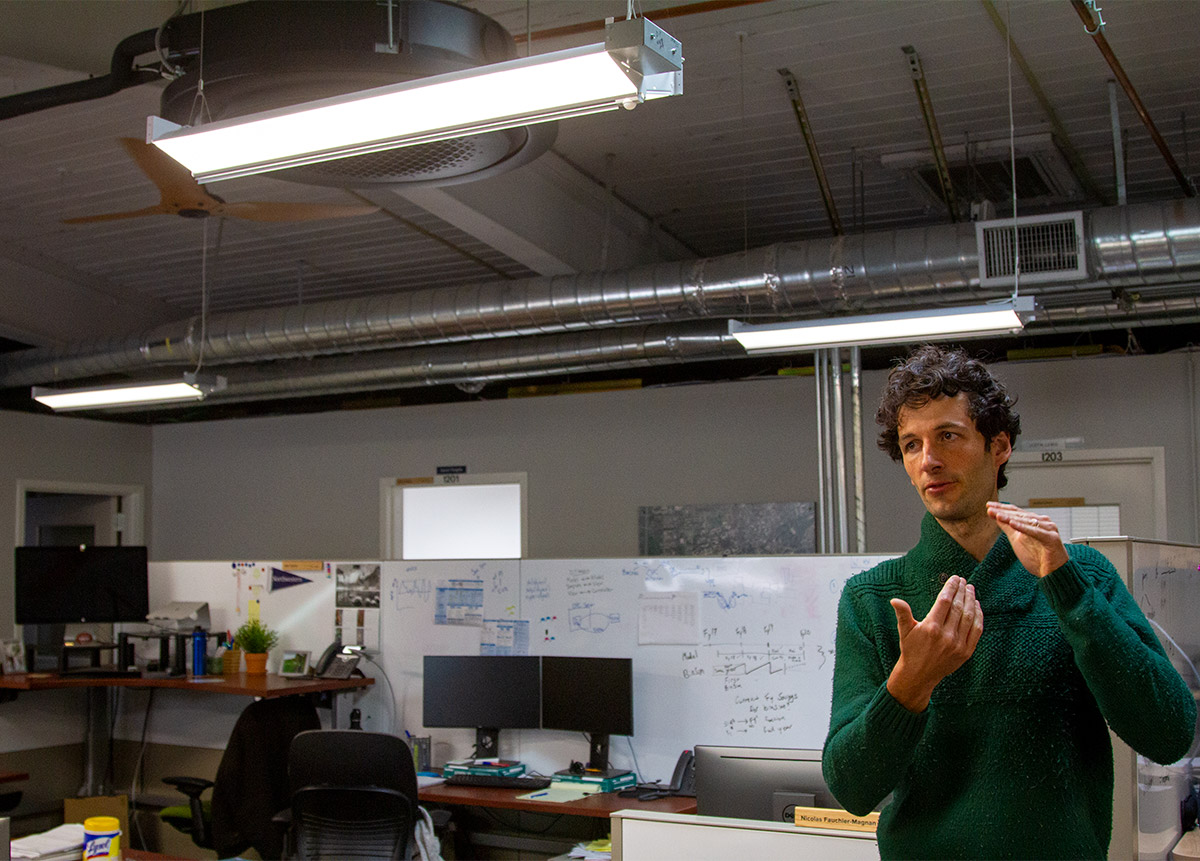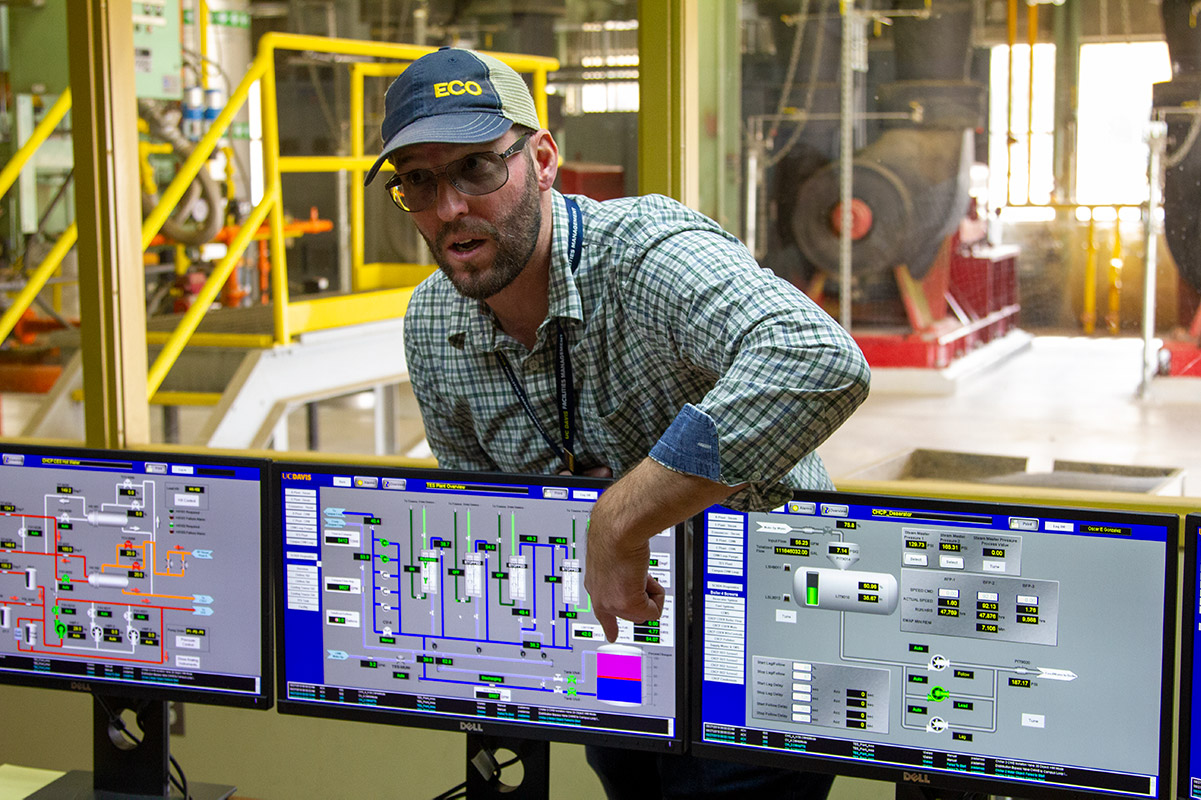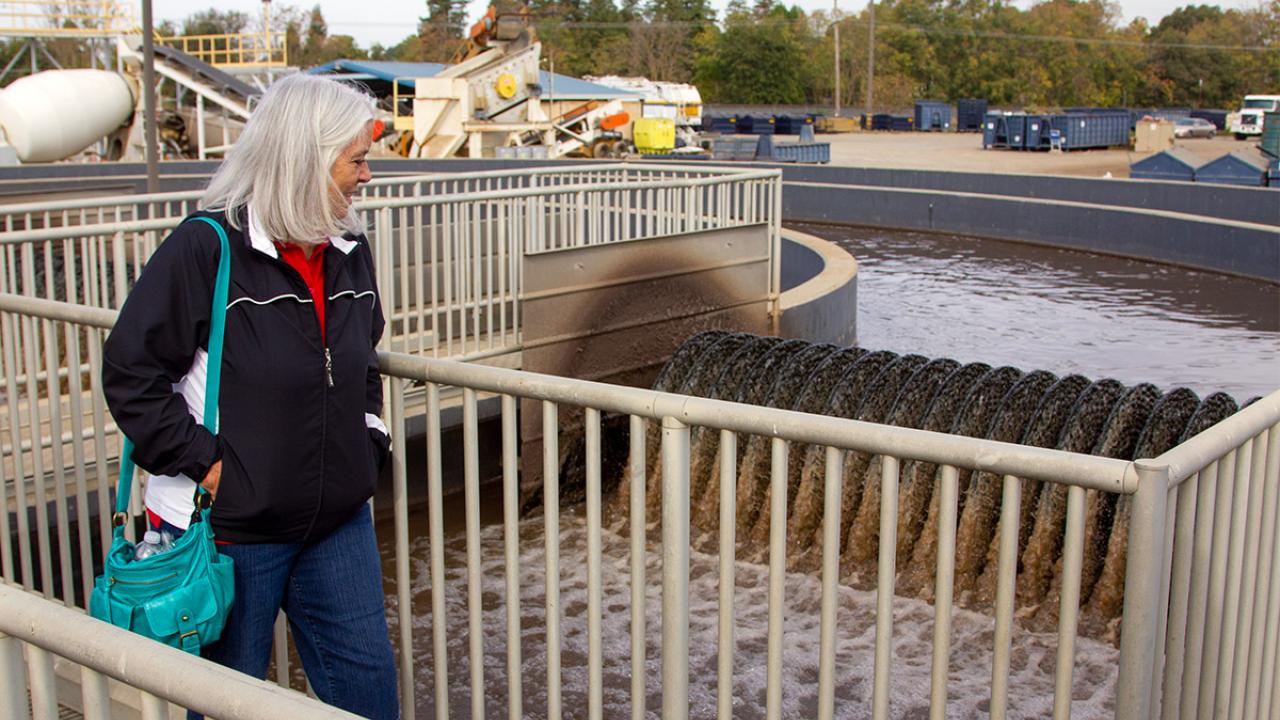It takes a lot of people to keep the campus running: to keep the lights on, the power flowing and the buildings comfortable. But on a recent behind-the-scenes tour, the most popular stop seemed to be the one with giant tanks full of wastewater.

“Seeing, hearing, smelling and understanding the volume of water that comes from campus and goes through there — that part was really interesting,” said Karen Gagnon, a chemical hygiene officer with Environmental Health and Safety.
“I thought it was great,” said Roshà Hester, a capital and space planner with Design and Construction Management.
“They already said the wastewater treatment plant, right?” Heather Spaulding of Environmental Health and Safety said upon hearing others discussing their favorite parts of the tour.
The wastewater treatment plant south of Interstate 80 is just one of many parts of campus overseen by Facilities Management and showcased on the department’s quarterly tour, which is open to anyone.
Last month, about a dozen people from various departments piled into a bus (the UC Davis-UC Berkeley shuttle operated by Fleet Services, which is part of Facilities Management) to meet the campus’s painters, electrical crews, woodworkers and others.
A focus on efficiency
At each stop, tour guides highlighted the efforts UC Davis is making to increase efficiency and save resources — like the work of energy and engineering, the office behind the Thermoostat app, which allows people around campus to report when their buildings are too hot or too cold.
Staff in that office estimate they’ll shave $1.2 million off the campus’s utilities bills this year, using tricks like turning the thermostats down when offices are empty, as reported by the number of devices connecting to Wi-Fi in a certain area.
“Those energy savings come back to fund the team,” said Nico Fauchier, an energy engineer supervisor.

Efficiency is reflected in the wastewater treatment plant, too, which is operating at less than half of its designed capacity because of reductions in water use over the years. The plant takes in water from the campus’s drains and toilets, allowing the solids to settle out before filtering and disinfecting the water with UV lights. Microorganisms feed on some of the bacteria present in the water during the process, and staff have to keep the water balanced, like a gut biome.
“She’s my baby,” said Rob Guider, a senior wastewater treatment plant operator. “I’m the one who takes care of her.”
Davis is the only UC campus with its own wastewater treatment plant. The treated water ends up in Putah Creek, by way of the Arboretum Waterway, where the influx of treated water helps with waterway flow.
The Facilities Management teams will be at the forefront of another major efficiency project in the coming years — switching the campus’s heating systems from 350-degree steam, created by heating water with natural gas, to 150-degree hot water heated with electricity, a renewable resource. The change will save energy but will require new pipes to be installed all over campus.
“Forty percent of the campus’s carbon footprint goes right into this building here,” energy project manager Tom Ryan, with the energy and engineering office, said as the Oct. 16 tour entered the Central Heating and Cooling Plant, where massive boilers create steam and pumps move heated and cooled water around campus. “In order to get away from all that carbon, we have to go away from steam.”
A complex campus

Staff also have to deal with unique requests, fabricating everything from kitchen countertops to research equipment. They also have to maintain those items, and Facilities Management runs its own storehouse selling glue, WD-40, fasteners, wire and other materials.
“It’s basically a mini-Home Depot,” said senior stores supervisor Eric Loveless. “If they need it on campus, we have it.”
With a campus as large and complex as UC Davis, the teams have their work cut out for them.
“I’ve been here 15 years and even I don’t know where all the meters are,” said Terry Duncan, who works on the team that, among other things, oversees meters measuring water and gas use across the campus.
Joe Carbahal, a superintendent in the power and lights unit, recently had to travel to South Korea to inspect a high-voltage transformer the university was purchasing to make sure it would perform as advertised.
And despite the complexity of their work, the teams showcased on the tour aren’t easily noticed when everything goes well.
“There’s lots of talented facilities experts, behind-the-scenes, doing amazing work,” Allen Tollefson, associate vice chancellor of Facilities Management, told the tour group during its lunch break. “Offering this tour gives attendees much more insight into what we do to make sure this university runs smoothly and sustainably.”
The next Facilities Management tour is scheduled for January, and signups will open a month prior. Stay apprised of the details by signing up for the Facilities Management newsletter.
